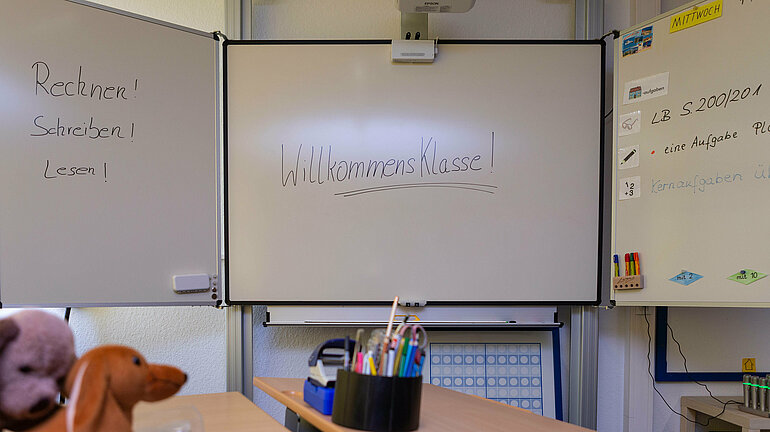Education in Liminality – The Situation of Ukrainian Displaced Schoolchildren in Germany
Education in Liminality – The Situation of Ukrainian Displaced Schoolchildren in Germany

This project is part of the joint project Living with Uncertainty. Strategies of Adaptation and Horizons of Expectations in Ukraine and Moldova (LimSpaces).
External partners: Prof. Denis Eckert and Prof. Béatrice von Hirschhausen (both Géographie-cités, Paris)
Project description
At least 200,000 displaced Ukrainian schoolchildren have arrived in Germany since Russia invaded Ukraine in February 2022. The life situation of these children and their families is characterised by extreme uncertainty. Many families are attempting to combine attendance at German schools with continued efforts to follow the Ukrainian curriculum. This means that while these children and teenagers attempt to learn German and establish social contacts in Germany, they maintain their connection with school in Ukraine so that they are able to reintegrate smoothly when they return home. This project investigates the education practices of displaced families and their associated visions of the future. It also explores how German education policy-makers and institutions are dealing with the challenges faced by this group of students in planning for the future.
Methodology
- Analysis of publicised measures taken by German and Ukrainian education policy-makers on behalf of Ukrainian schoolchildren
- Semi-structured interviews with representatives of the German education system
- Online survey of parents of Ukrainian displaced schoolchildren in Germany
- Semi-structured interviews with Ukrainian displaced schoolchildren in Germany and their parents
Key questions
- How are displaced people from Ukraine coping with the uncertainty of their situation?
- Which social characteristics explain differences in education practices and visions of the future?
- How are education practices and visions of the future changing over time?
- How do representatives of the German education system respond to uncertainty/crises?
- Is the presence of Ukrainian displaced children leading to any generalised change in German education policy towards non-German-speaking/refugee children?
- How is the country of origin’s diplomacy influencing education policies towards its citizens in the host country?
![[Translate to Englisch:]](/fileadmin/media/_processed_/3/2/csm_Loewis__Annette_Riedl__d15ffb8229.jpg
)
![[Translate to Englisch:]](/fileadmin/media/_processed_/6/1/csm_4_a_12b9758534.png
)